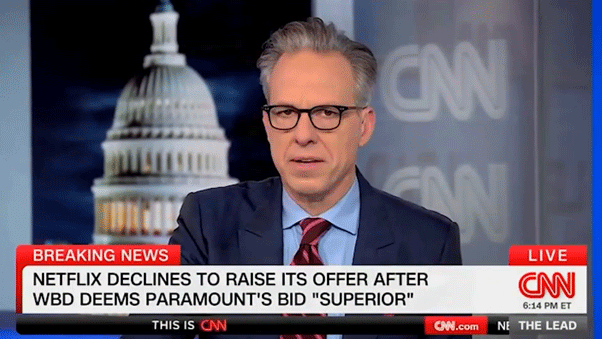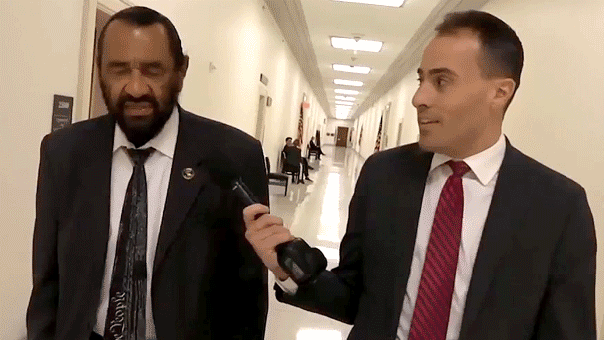Southern California city mayor shares how being a victim of crime led him to run for office
Escondido Mayor Dane White shares how an assault by a homeless person and his experience living on the streets, battling drug addiction, led him to turn his life around and run for mayor.
A Southern California mayor believes the state's "housing first" approach to the homeless and drug crisis is only making the situation worse and hindering local efforts to address the problems. He would know; he's lived it.
"[T]he state has said housing first is it, when it seems to only be working for a very small percentage of people and then anything else can't get state funds or county funds," Escondido's Republican Mayor Dane White, who once was homeless and battled drug addiction himself, told Fox News Digital.
In neighboring San Diego, the average number of people living on the streets in the downtown area has skyrocketed from 548 to 1,906 in the past decade.
White is a fifth-generation Escondido native who became the town's youngest mayor at the end of 2022. He shared how his own violent experience with a homeless person led him to run for office.
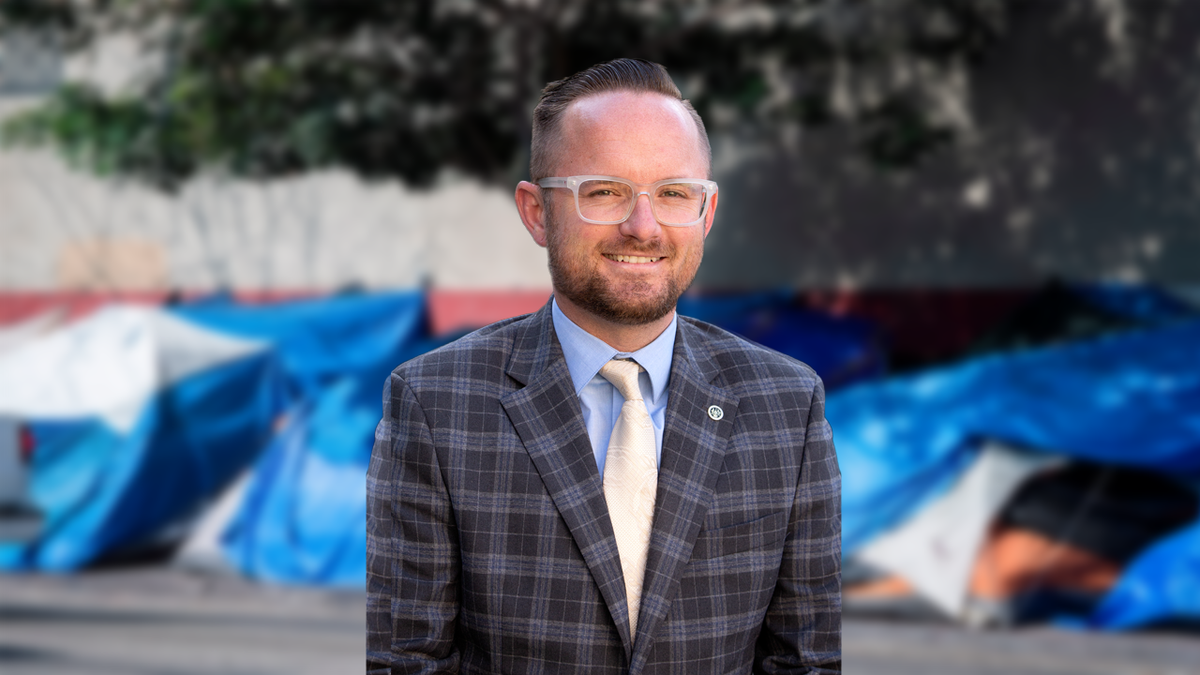
Escondido Mayor Dane White talked with Fox News Digital about California's homelessness and drug crisis. [Courtesy: Dane Whites office/Getty Images]
"I got assaulted, and not just assaulted —he threatened to kill me six times while chasing me angrily through a parking lot. He admitted to all of it, and he didn't even get arrested. He got a ticket, and then the case was just dropped entirely. I couldn't believe it," White said.
"I was stunned because you hear stories like that in California and think there's no way that that could be true. But it is. Literally, nobody cares. And it was time for somebody else to just step up and at least care a little bit," he added.
White's own background also gives him a unique perspective on addressing the homeless and drug problems plaguing his state. He spent several years living on the streets, battling an addiction to drugs, before entering rehab and turning his life around.
"I was actually first introduced to drugs when I was 11 or 12 here in Escondido, and that's part of the reason I was sent to boarding school. Then got back into drugs and alcohol my senior year when I was out of boarding school. Basically from the time I was 17 to 21, in and out of homelessness. I was in the foster care system briefly. It wasn't until a judge mandated I go to rehab that I went to rehab and that was in Utah. I actually came back to San Diego, then checked into a rehab here, and that's ultimately what turned things around," he explained.
CALIFORNIA SLEEPING POD BUSINESS HOPES TO ALLEVIATE AFFORDABLE HOUSING CRISIS IN THE STATE
The city leader disagrees with the "one-size-fits-all approach" state officials have offered as solutions, such as turning to "housing first" policies and primarily using "low-barrier" shelters.
Low-barrier shelters take a come as you are approach, and even let drug users get high in the facilities, White said, while high-barrier shelters require people to be clean, sober and seeking a job to stay there.
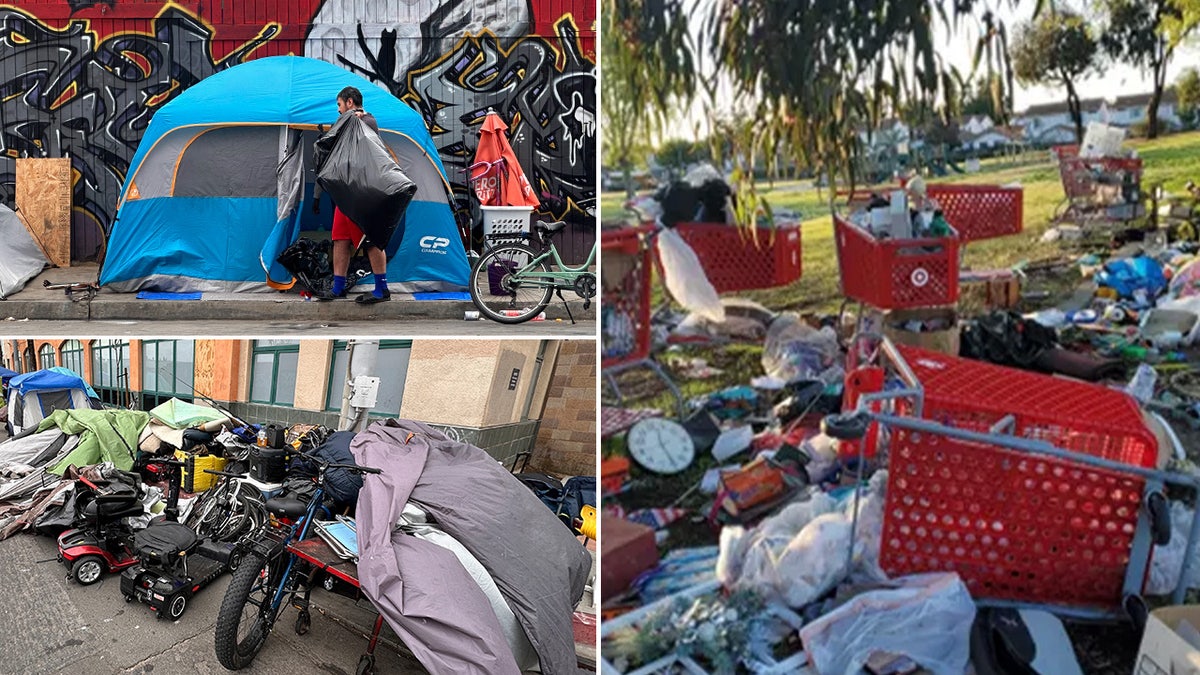
Homeless encampments in San Diego, California. (Fox News)
"The state of California says that everything we do has to be low barrier," he explained.
While he has "no problem" with low-barrier services, citing his own experience with them, he acknowledged he was in a more fortunate situation than many because he had family support. "A lot" of people addicted to drugs need facilities with more structure and accountability to get out of that lifestyle, White argued.
"They need structure. They need that rigidness. They need accountability, and we're not allowed to give it to them, not with state funds anyway," he said.
A recent study found nearly one third of the nation's homeless reside in the Golden State. White feels Democratic leaders have put too much emphasis on housing as the primary solution to the problem, when that only seems to address "a very small percentage of people."
"For Escondido, homelessness is mostly tied to drug and alcohol addiction; throughout the state, that might vary," he said. White thinks state leaders have "politicized" the issue and need to be more open to taking different approaches to treat the crisis.
" I think it's absolutely politicized. They politicized it to the point that we're totally willing to just watch people rot in their own filth and misery on the side of the road. And then those of us who want to do something different than what the state says must be done, are vilified and made out to be these evil creatures who don't have any of the right answers, when truthfully, there isn't one standard response for this particular issue," White said.
The Escondido city council has been "left to do this on their own" because they don't agree with the approach of the state, he said. White believes cities across the state should start looking out for themselves first, and partner with community groups, before asking the county or state for help.
VETERAN VOWS TO FIGHT ‘WOKE POLICIES,’ HOMELESS CRISIS IN LIBERAL ENCLAVE WITH BID FOR CONGRESS
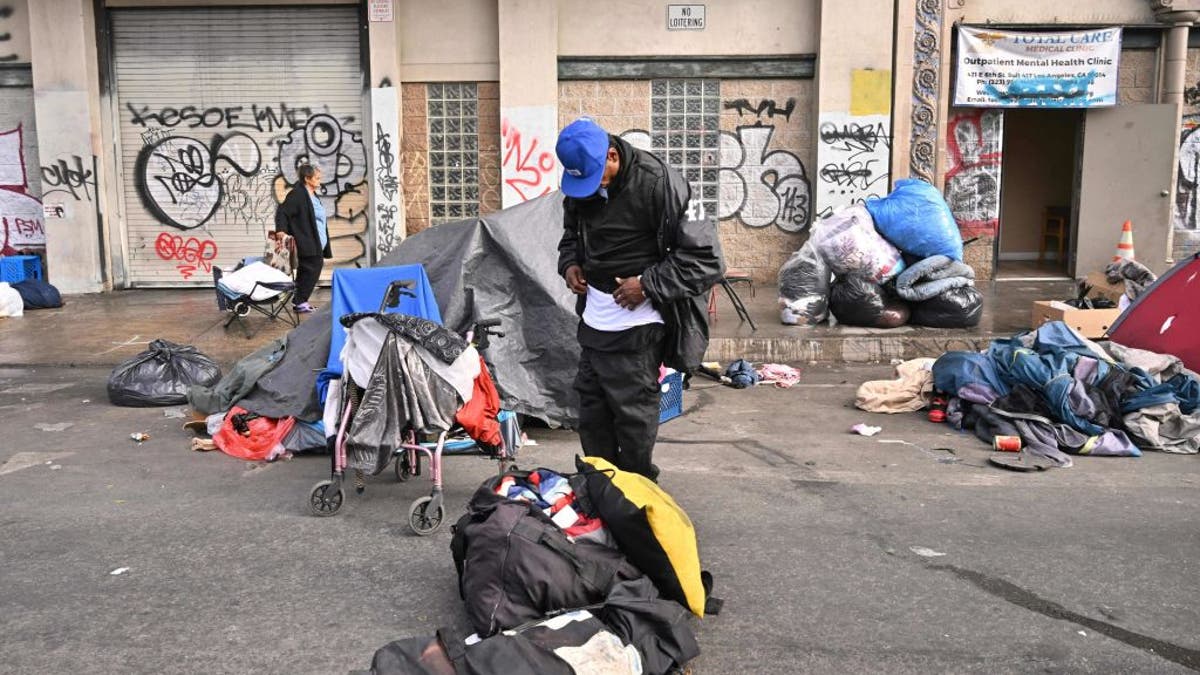
California needs to take more than a one-size-fits-all approach to homelessness and drug addiction, Mayor White said. (FREDERIC J. BROWN/AFP via Getty Images)
White said his goal as mayor is to get half the homeless population off the streets and into a shelter in the coming year, which he feels is reasonable with the proper financial backing.
But the mayor thinks the crisis will not improve if state leaders continue to take the same approach.
"So until a state like California is open to multiple solutions, we're just going to continue to see the numbers get worse and worse… It grows every year. And not just the amount of homeless people, the amount of people addicted to drugs, the amount of people with a mental health crisis... It all goes up because we take this one-size-fits-all approach," he argued.
Democratic leaders across the state may be getting the message.
San Francisco Mayor London Breed proposed a plan last week to require welfare recipients to comply with mandatory drug testing and treatment programs, saying that more "accountability" was needed.
"We fund a wide range of services, and we want to help people get the care they need but under current state law, local government lack tools to compel people into treatment. This initiative aims to create more accountability and help get people to accept the treatment and services they need," Breed said in a statement.
Democratic Governor Gavin Newsom has also objected to rulings by the Ninth Circuit Court of Appeals, which he claims have "paralyzed" state officials from clearing homeless encampments.
The court recently upheld a ruling invalidating a local anti-camping ordinance in Grants Pass, Oregon, that would have barred people from sleeping on public property. The case expanded upon the prior case of Martin v. City of Boise, which prevented criminalizing people sleeping in public spaces if cities couldn't supply sufficient beds to accommodate them.
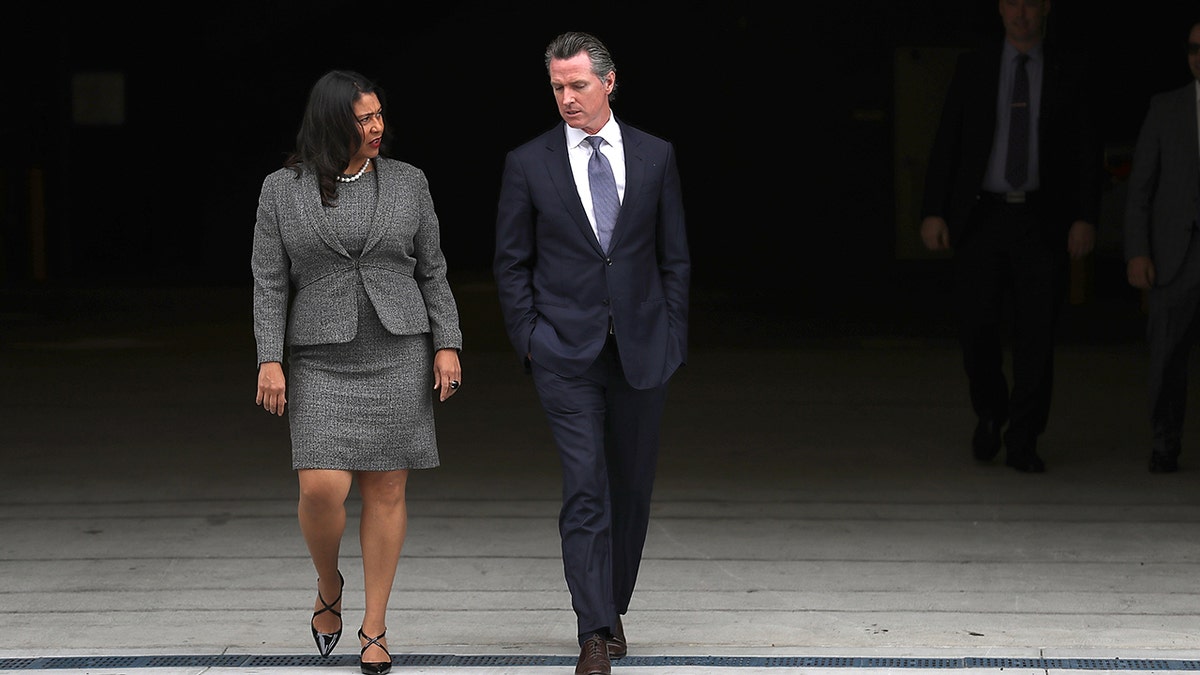
San Francisco Mayor London Breed and Gavin Newsom have spoken out against court rulings against anti-camping ordinances. (Getty Images)
CLICK HERE TO GET THE FOX NEWS APP
The Democrat filed an amicus brief to ask for a review of the case by the U.S. Supreme Court to provide "clarification" to local and state governments' abilities in combating the homelessness crisis.
"These courts have stretched Martin’s reasonable limit into an unsurmountable roadblock, preventing cities and towns from imposing commonsense time and place restrictions to keep streets safe and to move those experiencing homelessness into shelter," Newsom's amicus brief states. "California’s elected officials who seek in good faith to improve what often appears to be an intractable crisis have found themselves without options, forced to abandon efforts to make the spaces occupied by unhoused people safer."
The two Democrats' pushback on these rulings drew criticism from progressive organizations.
For more Culture, Media, Education, Opinion, and channel coverage, visit foxnews.com/media.
Fox News' Lindsay Kornick and Danielle Wallace contributed to this report.







